
Toxicology Communications
metrics 2024
Fostering collaboration in the realm of toxicology.
Introduction
Toxicology Communications is a vital academic journal published by Taylor & Francis Ltd, focusing on the critical field of toxicology. Established as an Open Access journal since 2017, it provides researchers, professionals, and students unrestricted access to significant findings in toxicological sciences, promoting global collaboration and knowledge sharing. The journal aims to disseminate innovative research, reviews, and case studies that explore the effects of chemical, biological, and physical agents on human health and the environment. With its commitment to high-quality publications, Toxicology Communications plays an essential role in advancing our understanding of toxicological phenomena and fostering safe practices across various industries. This makes it an invaluable resource for anyone dedicated to the studies of toxins and their environmental and health implications.
Metrics 2024
 -
- 1.10
1.10 -
- -
-Metrics History
Rank 2024
IF (Web Of Science)
JCI (Web Of Science)
Quartile History
Similar Journals
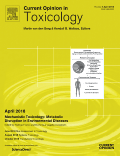
Current Opinion in Toxicology
Connecting Researchers to the Pulse of ToxicologyCurrent Opinion in Toxicology is a premier academic journal published by Elsevier, focusing on the latest advancements and perspectives in the field of toxicology. With an impressive impact factor reflecting its high citation and influence within the research community, this journal ranks in the Q1 category for Toxicology, positioned at #8 out of 133 in the Scopus Toxicology domain, placing it in the 94th percentile. The journal aims to provide concise and insightful reviews of contemporary research, fostering an understanding of critical issues related to toxic effects of chemicals and environmental agents. Although not an open access journal, it attracts a worldwide readership, making it an essential resource for researchers, professionals, and students committed to understanding toxicological science. Based in the Netherlands, Current Opinion in Toxicology serves as a platform for stimulating scholarly dialogue and guiding future research directions in this vital area of study.
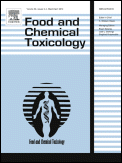
FOOD AND CHEMICAL TOXICOLOGY
Advancing food safety through rigorous toxicological research.FOOD AND CHEMICAL TOXICOLOGY, published by Pergamon-Elsevier Science Ltd, is a prestigious journal with a significant impact in the fields of food science, medicine, and toxicology, reflecting its Q1 and Q2 quartile rankings in various categories as of 2023. Established in 1982, this journal continues to serve as an essential platform for disseminating high-quality research focused on the toxicological assessment of foods and chemicals, aiming to advance knowledge that affects public health and safety. With a pivotal role in integrating diverse disciplines, including pharmacology and agricultural sciences, the journal ranks impressively within the top percentiles—specifically 95th in Toxicology and 92nd in Food Science on the Scopus metrics. Though it operates on a traditional subscription model, the journal is committed to providing valuable insights and findings to researchers, professionals, and students across the globe, making it a vital resource in the ongoing discourse around food safety and environmental health. Its comprehensive scope underscores its importance in shaping evidence-based policies and practices.
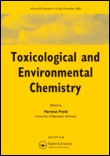
TOXICOLOGICAL AND ENVIRONMENTAL CHEMISTRY
Advancing knowledge at the crossroads of chemistry and health.TOXICOLOGICAL AND ENVIRONMENTAL CHEMISTRY is a pivotal journal published by Taylor & Francis Ltd, addressing critical intersections between environmental chemistry and toxicology since its inception in 1979. With its ISSN 0277-2248 and E-ISSN 1029-0486, the journal serves as a platform for rigorous research and innovative methodologies in pollution control, health implications of environmental chemicals, and the broader spectrum of toxicological studies. Although it currently does not offer open access, the journal's impact in the field is underscored by its Category Quartiles rankings in 2023, placing it in Q3 across Environmental Chemistry, Health, Toxicology and Mutagenesis, and Pollution categories. Furthermore, its Scopus rankings reveal its significant role within the scientific community, specifically in areas such as Environmental Science and Toxicology. The journal aspires to foster multidisciplinary dialogue and advance knowledge that contributes to environmental sustainability and public health, making it an essential resource for researchers, professionals, and students dedicated to these fields.

Journal of Medical Toxicology
Elevating Standards in Medical Toxicology KnowledgeThe Journal of Medical Toxicology, published by SPRINGER, is a leading interdisciplinary journal dedicated to advancing the understanding of toxicology and its implications in medical practice. With an ISSN of 1556-9039 and an E-ISSN of 1937-6995, this esteemed journal has been a pivotal resource since its inception in 2005, continuing to serve the scientific community through its convergence period lasting until 2024. Its prestigious positioning in the Q2 category in both Health, Toxicology and Mutagenesis, and Toxicology reflects its significant contribution and reputation within the field, recognized by impressive Scopus rankings in Environmental Science and Pharmacology. This journal delves into critical issues surrounding the diagnosis and treatment of toxic exposures, thereby aligning closely with both clinical and public health objectives. Researchers, professionals, and students can benefit from the robust analyses and innovative findings published within its pages, reinforcing the journal's role as an essential platform for knowledge dissemination in medical toxicology.
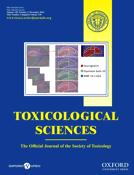
TOXICOLOGICAL SCIENCES
Transforming Toxicological Knowledge into ActionTOXICOLOGICAL SCIENCES, published by Oxford University Press, is a premier journal in the field of toxicology that has been a cornerstone of scientific discourse since its inception in 1981. With an impressive 2023 impact factor and ranked in the Q1 category for Toxicology, this journal is highly regarded among researchers, professionals, and students dedicated to pharmacology and toxicology. The journal is committed to advancing the understanding of toxicological science, covering a breadth of topics that include the mechanisms of toxicity, risk assessment, and the regulatory aspects affecting public health. With an ISSN of 1096-6080 and an E-ISSN of 1096-0929, TOXICOLOGICAL SCIENCES facilitates open access scholarly work, ensuring that critical research reaches a global audience and promotes collaborative learning. As it converges towards 2024, the journal remains pivotal in shaping the future of toxicology research, providing insights that are essential for developing safer chemicals and protecting environmental health.
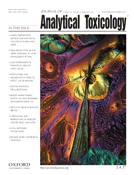
JOURNAL OF ANALYTICAL TOXICOLOGY
Fostering Innovation in Analytical ToxicologyJOURNAL OF ANALYTICAL TOXICOLOGY, published by Oxford University Press Inc, stands as a leading platform in the field of analytical chemistry and toxicology, focusing on the rigorous exploration of methodologies and advancements in the detection of toxic substances. Since its inception in 1977, this journal has continually contributed to the scientific community, providing researchers and professionals with vital insights into chemical health, safety, and environmental implications. With an impressive Q1 ranking in both Analytical Chemistry and Chemical Health and Safety, along with reputable Q2 rankings in Environmental Chemistry and Toxicology, the journal maintains its critical standing in vibrant academic communities, ensuring the dissemination of high-quality research. Although it currently does not offer open access, articles are made available via institutional subscriptions, allowing widespread access to its valuable findings. Located in the United States, the journal contains a wealth of knowledge poised to benefit scientists and scholars engaged in toxicological research, emphasizing its importance in enhancing public health and safety.
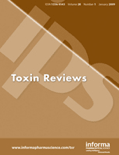
Toxin Reviews
Transforming Toxicological Research into ActionToxin Reviews is a premier academic journal focused on the critical field of Toxicology, published by Taylor & Francis Inc. Established with an aim to foster research and disseminate knowledge, this journal has been pivotal since its inception in 1982 and continues to be a leading platform for both emerging and established researchers. With an impressive impact factor and ranked in the 75th percentile among its peers in the Scopus categories, it serves as an essential resource for scientists, practitioners, and students interested in understanding the complexities of toxins and their effects on health. The journal provides an Open Access platform, enhancing visibility and accessibility of research findings to a broader audience. Covering a wide scope, Toxin Reviews plays a vital role in bridging gaps between toxicological research and practical applications, ensuring that rigorous scientific inquiry translates into real-world solutions.

International Journal of Medical Toxicology and Forensic Medicine
Connecting Global Experts in Medical ToxicologyInternational Journal of Medical Toxicology and Forensic Medicine, published by Shaheed Beheshti Medical University of Medical Sciences & Health Services, is a pioneering platform dedicated to advancing knowledge within the critical fields of toxicology and forensic medicine. Established as an Open Access journal since 2011, it ensures wide dissemination of research findings, catering to a global audience of researchers, healthcare professionals, and students. With an ISSN of 2251-8762 and an E-ISSN of 2251-8770, the journal covers a diverse range of topics relevant to the medical community, albeit being categorized as Q4 in both Pathology and Forensic Medicine and Toxicology in 2023, indicating emerging significance in these disciplines. Geographically based in Tehran, Iran, it aspires to bridge gaps in scientific research and practice, particularly in regions where such expertise is critical. The journal welcomes submissions that investigate pressing issues in medical toxicology and forensic science, fostering an interdisciplinary dialogue essential for innovative solutions and improved public health outcomes.

Toxicological Research
Advancing toxicological knowledge for a safer tomorrow.Toxicological Research is a prominent academic journal dedicated to advancing the field of toxicology through rigorous exploration and innovative research. Published by the Korean Society of Toxicology, this journal serves as a vital resource for researchers, professionals, and students engaged in environmental science, pharmacology, and toxicology. With an ISSN of 1976-8257 and an E-ISSN of 2234-2753, Toxicological Research highlights significant findings and discussions in the realm of health, toxicology, and mutagenesis. Although not an open-access journal, it maintains a solid reputation as evidenced by its Q3 ranking in both health-related toxicology and general toxicology categories for 2023. The journal covers a broad spectrum of topics from fundamental research to applied toxicology and provides a unique platform for the dissemination of knowledge in a field that is increasingly relevant in today’s society. With an anticipated convergence period from 2008 to 2024, Toxicological Research continues to contribute vital insights to understanding the implications of toxic substances on health and the environment.
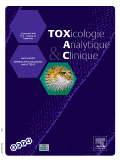
Toxicologie Analytique et Clinique
Shaping Tomorrow’s Toxicology Through Rigorous AnalysisToxicologie Analytique et Clinique is a distinguished journal published by ELSEVIER MASSON SAS EDITEUR, specializing in the ever-evolving fields of toxicology and clinical analysis. With its ISSN number 2352-0078 and E-ISSN 2352-0086, this journal has been contributing to the scientific dialogue since its inception in 2014, with a converged publication timeline extending to 2024. Despite its current standing in the Q4 category for both Health, Toxicology and Mutagenesis, and Toxicology in the 2023 metrics, as indicated by its rankings on Scopus, Toxicologie Analytique et Clinique remains a crucial platform for disseminating vital research within these domains. The journal's focus on analytical and clinical toxicology makes it an invaluable resource for researchers, practitioners, and students, seeking to enhance their understanding and methodologies in toxicological studies. As a vital contributor to the academic landscape, Toxicologie Analytique et Clinique aims to provide a rich repository of knowledge that promotes innovation and safety in clinical practices and environmental science.